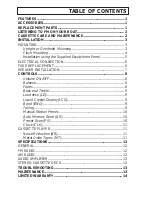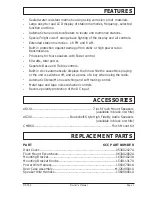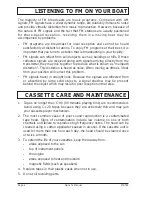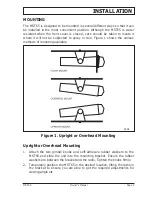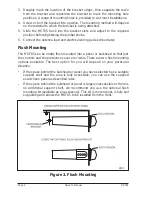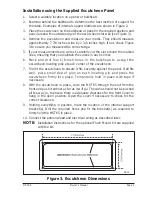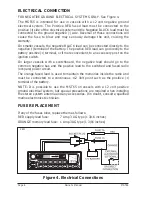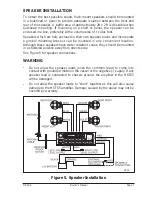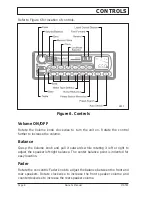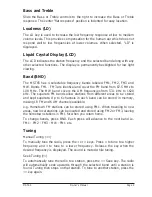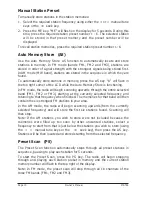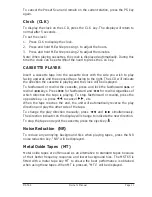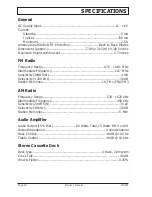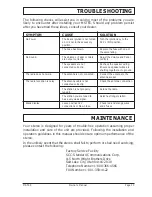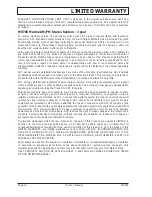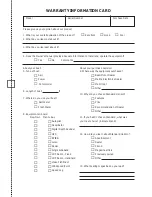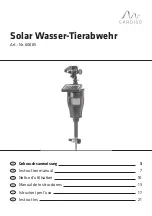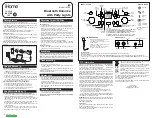
Page 2 Owner’s Manual MST65
LISTENING TO FM ON YOUR BOAT
The majority of FM broadcasts are music programs. Compared with AM
signals, FM signals have a wider dynamic range, are relatively immune to noise
and provide virtually distortion-free music reproduction. However, because of
the nature of FM signals and the fact that FM stations are usually positioned
for shore-based reception, receiving them in a moving boat may be
accompanied by problems.
●
FM programs are broadcast for local reception and cannot be heard
satisfactorily at distant locations. To enjoy FM programs at their best, it is
important that you tune to a station that is broadcasting in your locality.
●
FM signals can reflect from solid objects such as buildings or hills. If these
reflected signals are received along with signals arriving directly from the
transmitter, they may mix together to produce what is known as "multipath
distortion". This distortion is heard as noise. Often moving as little as 3 feet
from your position will correct this problem.
●
FM signals travel in straight lines. Because the signals are reflected from
or absorbed by large solid objects, a signal shadow may be present
behind the object which may result in poor reception in that area.
CASSETTE CARE AND MAINTENANCE
1. Tapes no longer than C-90 (90 minutes playing time) are recommended.
Avoid using C-120 tapes because they are extremely thin and may jam
your cassette player mechanism.
2. The most common cause of poor sound reproduction is a contaminated
tape head. Signs of contamination include low volume on one or both
channels and failure to reproduce high frequency notes. The head can be
cleaned using a cotton applicator soaked in alcohol. If the cassette unit is
used for more than one hour each day, the head should be cleaned once
or twice a month.
3. To extend the life of your cassettes, keep them away from:
●
areas exposed to the sun
●
top of instrument panels
●
the engine
●
areas exposed to heat and moisture
●
magnetic fields (such as speakers)
4. Replace tapes in their plastic cases when not in use.
5. Do not oil revolving parts.


